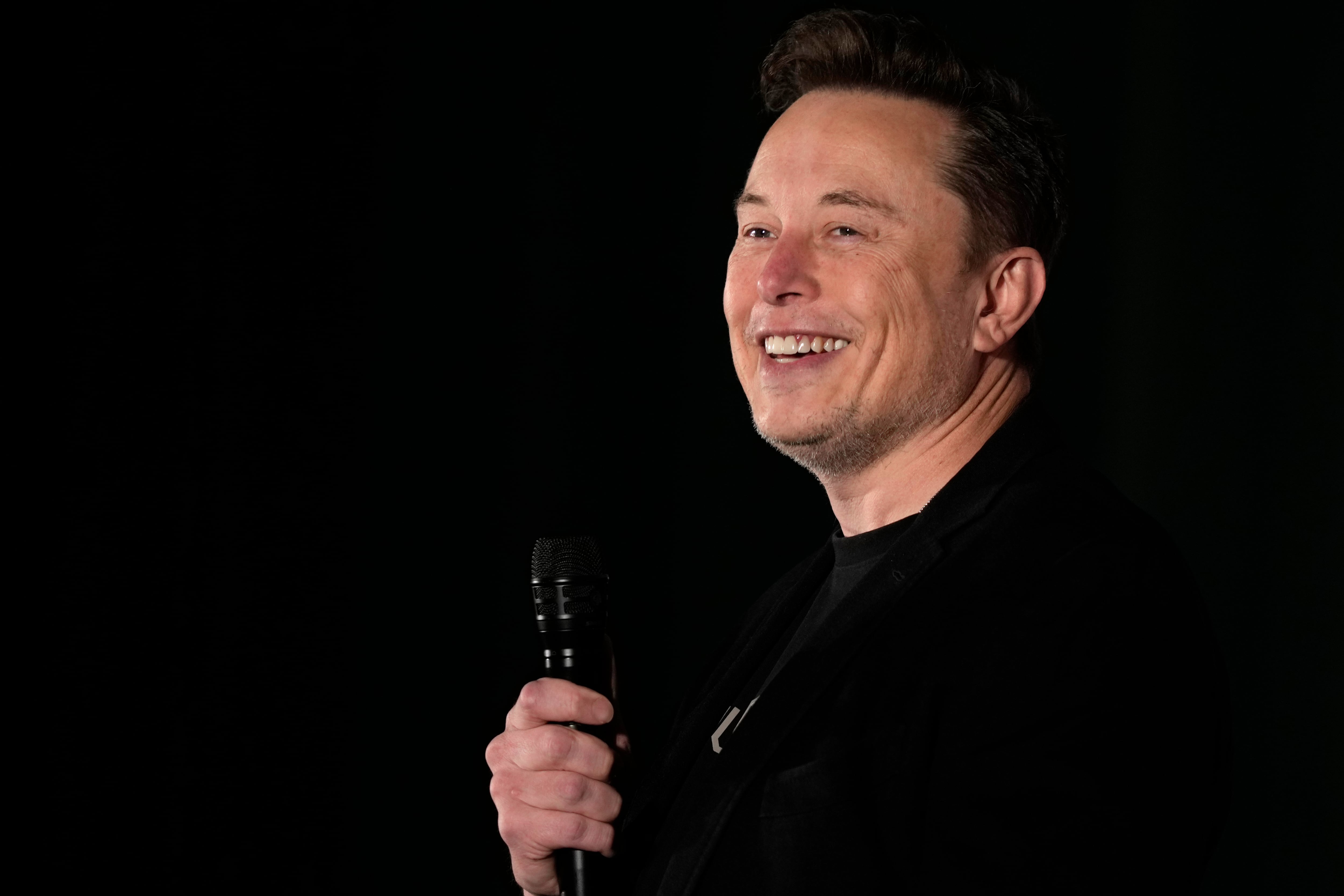Elon Musk said a third person has received an implant from his brain-computer interface company Neuralink, one of many groups working to connect the nervous system to machines.
“We've got ... three humans with Neuralinks and all are working well,” he said during a wide-ranging interview at a Las Vegas event streamed on his social media platform X.
Since the first brain implant about a year ago, Musk said the company has upgraded the devices with more electrodes, higher bandwidth and longer battery life. Musk also said Neuralink hopes to implant the experimental devices in 20 to 30 more people this year.
Musk didn't provide any details about the latest patient, but there are updates on the previous ones.
The second recipient — who has a spinal cord injury and got the implant last summer — was playing video games with the help of the device and learning how to use computer-aided design software to create 3-D objects. The first patient, also paralyzed after a spinal cord injury, described how it helped him play video games and chess.
But while such developments at Neuralink often attract notice, many other companies and research groups are working on similar projects. Two studies last year in the New England Journal of Medicine described how brain-computer interfaces, or BCIs, helped people with ALS communicate better.
Who's working on brain-computer interface technology?
More than 45 trials involving brain-computer interfaces are underway, according to a U.S. database of studies. The efforts are aimed at helping treat brain disorders, overcoming brain injuries and other uses.
Many research labs have already shown that humans can accurately control computer cursors using BCIs, said Rajesh Rao, co-director of the Center for Neurotechnology at the University of Washington.
Rao said Neuralink may be unique in two ways: The surgery to implant the device is the first time a robot has been used to implant flexible electrode threads into a human brain to record neural activity and control devices. And those threads may record from more neurons than other interfaces.
Still, he said, the advantages of Neuralink’s approach have yet to be shown, and some competitors have eclipsed the company in other ways. For example, Rao said companies such as Synchron, Blackrock Neurotech and Onward Medical are already conducting BCI trials on people “using either less invasive methods or more versatile approaches” that combine neural recording with stimulation.
What are the benefits of BCIs?
Marco Baptista, chief scientific officer of the Christopher & Dana Reeve Foundation, called BCI technology “very exciting” with potential benefits to people with paralysis.
Through clinical trials, “we’ll be able to see what’s going to be the winning approach,” he said. “It’s a little early to know."
Baptista said his foundation generally tries to support research teams financially and with expert help – though it hasn’t given any money to Neuralink.
“We need to really support high-risk, high-reward endeavors. This is clearly high-risk, high-reward. We don’t know how safe it’s going to be. We don’t know how feasible it’s going to be," he said.
How are BCIs tested and regulated?
Neuralink announced in 2023 that it had gotten permission from U.S. regulators to begin testing its device in people.
While most medical devices go on the market without clinical studies, high-risk ones that undergo pre-market approval need what’s called an “investigational device exemption” from the Food and Drug Administration, said Dr. Rita Redberg, a cardiologist at the University of California, San Francisco, who studies high-risk devices.
Neuralink says it has this exemption, but the FDA said it can’t confirm or disclose information about a particular study.
Redberg said the FDA tends to be involved in all steps from recruiting patients to testing devices to analyzing data. She said this regulatory process prioritizes safety.
She also pointed to another layer of protection: All research involving people needs an institutional review board, or IRB. It can also be known as an ethical review board or an independent ethics committee. Members must include at least one non-scientist as well as someone not affiliated with the institution or organization forming the board.
The role of such boards “is to assume there is reasonable risk and reasonable chance of benefit and that patients are informed of those before they enroll," said Redberg.
___
The Associated Press Health and Science Department receives support from the Howard Hughes Medical Institute’s Science and Educational Media Group and the Robert Wood Johnson Foundation. The AP is solely responsible for all content.













